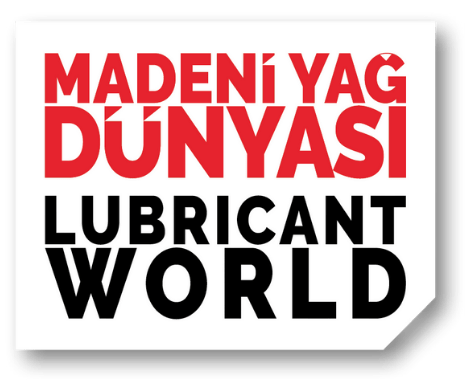The CElements of the European Green Deal (CCF, CSRD, CSDDD & Co.) ultimately affect all companies – large global corporations and regional SMEs, in energy trading as well as in the lubricants business, inside and outside of Europe, i.e. also in Turkey. Strategy and sustainability expert Apu Gosalia explains why this is not simply a burden, but rather also a great chance.
The European Green Deal is a concept presented by the European Commission in December 2019 with the aim of reducing greenhouse gas (GHG) emissions in the European Union (EU) to zero by 2050, making it the first continent to become climate neutral.
The Green Deal comprises a series of measures, the three most important of which begin with the letter ‘C’ – CCF (GHG emissions accounting), CSRD (sustainability reporting) and CSDDD (supply chain directive).
Many of the affected companies feel that the implementation of these CElements is too complex, too bureaucratic, too time-consuming, too cost-intensive or too risky. However, it is much more important to recognise that these measures also represent a major – often previously unused – chance for them.
Chance CCF
The CCF (Corporate Carbon Footprint) is the CO2 balance or CO2 footprint of companies. It is made up of the direct and indirect GHG emissions of the entire organisation, i.e. in the company itself at a location or a part of the company and records all emissions generated by the organisation’s activities within a year.
This gives companies an overview of their operational GHG inventory, an insight into the carbon footprint of their various locations and the chance to identify their strongest emission drivers. In this way they can establish measures to reduce them sustainably and thus develop a carbon reduction target with a reduction pathway for their own climate and sustainability strategy.
In addition, a CCF gives organisations the chance to review ecological risks and weak points in the company and to develop optimisation processes in climate and environmental management, e.g. in operational energy management. This can also lead to economic improvements in the form of long-term cost savings.
By drawing up a GHG balance sheet, companies also have the chance to differentiate themselves from their competitors and to emphasise their active climate management as a unique selling point (USP). As pioneers, they can also encourage other companies within the industry to initiate a CCF calculation themselves as well as an essential component of their corporate climate protection.
In addition, a CCF gives companies the chance to respond to the increasing demands of politicians, capital market investors and customers in terms of transparency and responsibility and to prepare for future legal requirements at an early stage. Analyses have shown that the creation of a carbon footprint and the associated environmental awareness can result in greater customer loyalty, the acquisition of new target customer segments and can also have an impact on a company’s creditworthiness.
“CO2 measurement is not everything – but without CO2 measurement everything is nothing. What we cannot measure, we cannot manage and what we cannot manage, we cannot minimise – that is the strategic triad of the ‘3 M’s’.”
The preparation of an annual CCF will soon have the status in companies that a financial balance sheet has had for many years, as it serves as the basis for continuous CO2 management at corporate level and is also a mandatory core component of CSRD-compliant sustainability reporting.
Chance CSRD
The CSRD (Corporate Sustainability Reporting Directive), which came into force on 5 January 2023, increases the accountability of European companies on environmental, social and governance (ESG) aspects relating to sustainability. In the future, companies above a certain size will have to report on their sustainability performance and how they deal with the associated risks and opportunities.
To this end, the European Sustainability Reporting Standard (ESRS) is the first binding reporting format introduced at EU level, according to which all companies in the EU – including lubricant manufacturers and energy traders – must report for the 2025 financial year at the latest if they fulfil two of the following three criteria:
– Total assets: > €25 million
– Net sales: > 50 million euros
– Number of employees: > 250
The CSRD will apply to large corporations and companies that are already subject to reporting requirements from 2024 and will be extended in phases – small and medium-sized enterprises will also have to comply if they want to be successful as part of the supply chain with their clients. In total, around 50,000 companies in the EU are affected by the new CSRD obligation. The CSRD will also impact Turkish (lubricant) companies that operate or want to operate within the EU market.
It is understandable that the CSRD poses numerous challenges for companies, which can be read about in detail. Unfortunately, far too little or nothing is mentioned on the chances that the CSRD presents for companies. On the one hand, companies can see the CSRD as a chance for innovation and transformation and actively use it to develop, implement and drive forward more sustainable practices. Examples of these innovations include a stronger focus on new technologies for CO2 reduction or staff training in environmental protection.
On the other hand, individual elements of the CSRD such as the GHG balance sheet, the double materiality analysis or the so-called Scope 3 screening help companies to identify weaknesses, strengthen their risk management and develop solutions to improve their environmental impact and social relations. This gives them the chance to create both environmental and social value and position themselves as pioneers in sustainability.
The CSRD is also a chance to raise awareness of sustainability issues in corporate management and to promote the integration of ESG criteria into the business strategy. The information collected for the CSRD obligation can be used in the long term for the company’s own strategy process and the expansion of competitive advantages, e.g. to identify potential savings, for the long-term further development of the company’s own business model or to leverage innovation potential.
The CSRD should not only be seen as a chance for a company’s own sustainability performance, but also for its strategic sustainability communication. Transparent reporting can help to improve communication and interaction with various stakeholders and to fulfil various existing and future information requirements in a structured manner, as it is not only a company’s own employees, customers or suppliers who are interested in its sustainability information, but also authorities or financial partners.
In this respect, a CSRD report opens up the chance to meet official information requirements and thus contribute to reducing bureaucracy, while enabling investors to make more informed decisions and better evaluate companies. It is also a chance for companies to attract young professionals, for whom serious and transparent sustainability (communication) is becoming an increasingly important factor when choosing a job. In this way, companies can strengthen the trust of their stakeholders, reinforce their image as a responsible organisation and create long-term value for all stakeholders
Chance CSDDD
The CSDDD (Corporate Sustainability Due Diligence Directive or CS3D) is an EU directive on the due diligence obligations of companies with regard to their suppliers and their supply chain in the context of sustainability. After a long struggle, it was adopted by the EU member states by a qualified majority on 15 March 2024 in a watered-down version, finally approved by the European Parliament on 24 May 2024 and came into force on 14 June 2024. The EU member states must now transpose the CSDDD into national law by June 2026. The directive obliges all EU and non-EU companies that are active in the EU market to monitor and take responsibility for their entire supply chain with regard to social and environmental standards (including working conditions, human rights and environmental protection, but also anti-corruption and consumer protection). It extends previous national approaches to a broader, EU-wide level. The scope of application of the CSDDD will be expanded in stages each year and ultimately include EU and foreign companies with 1,000 employees that generate more than 450 million euros in global net sales. It is expected that companies that are based in Turkey and that are involved, directly or indirectly, in EU activities will be subject to specific obligations under the CSDDD.
The introduction of the CSDDD presents many companies with major challenges, but also opens up chances in terms of working closely with suppliers to improve sustainability. This can promote long-term partnerships, increase supply chain stability and strengthen the resilience of supply chains, which has become increasingly important since the coronavirus pandemic.
In addition, addressing sustainability in the supply chain can promote innovation within a company, for example in areas such as recycling, energy efficiency or socially responsible procurement, and thus provide a chance for more sustainable business models. The CSDDD can also indirectly be a chance for companies to create greater proximity to end consumers and even open doors to new markets and customers, especially if they value sustainable products and processes as well as compliance with high sustainability standards throughout the supply chain.
Companies that are more committed to social and environmental responsibility through the CSDDD commitment and report transparently on their efforts to comply with these standards can become more attractive to their own and potential future employees, especially to generations Y and Z, who value the ethical standpoint of their employer throughout the supply chain.
The CSDDD is also a chance to improve the brand image of companies, which can thereby strengthen their credibility with various stakeholders, who want to invest in responsible business models.
The CSDDD Directive creates fair and transparent conditions for all companies operating in the EU, thus strengthening trust in the European economy and contributing to the realisation of the objectives of the European Green Deal, as well as addressing global challenges in the area of sustainability in the supply chain.
In addition to CCF, CSRD and CSDDD, the European Green Deal includes a number of other CElements, such as CBAM (Carbon Border Adjustment Mechanism) or CEAP (Circular Economy Action Plan). They all certainly represent a challenge for many companies. But nothing is as bad that it is not good for something. At the same time, they also present a wide range of chances for companies. In any case, these CElements mean change. But as the Greek philosopher Heraclitus of Ephesus recognised already 2,500 years ago: ‘The only constant in the universe is change.’





